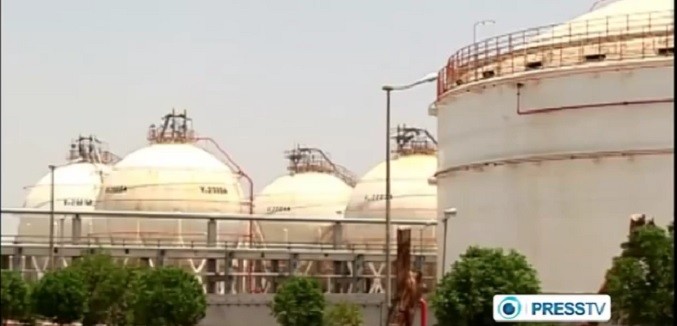Reuters on Thursday published an extensive evaluation – double bylined by the outlet’s veteran U.S. foreign policy correspondent Arshad Mohammed and its energy & environment correspondent Timothy Gardner – conveying new responses from the Obama administration to concerns over what outside experts have evaluated as seven straight months of Iran violating restrictions on its energy exports:
At first glance, Iran appears to have exported more oil than allowed under a nuclear agreement with major powers, but rather than complaining, U.S. officials argue Tehran is skating just inside the deal’s ambiguous limits.
Iran’s higher exports reflect its exploitation of a loophole in U.S. law that allows its customers to buy condensates, a very light oil, without fear of U.S. sanctions. Rising gifts of crude oil to Syria are not covered by the deal.
The Joint Plan of Action (JPA), announced in November, limits Iran to exporting roughly 1 million barrels per day (bpd) of crude averaged out over the JPA’s six-month implementation window. Iran subsequently busted through that limit every single month, until by late May Timothy Wilson, a visiting fellow at the Foundation for Defense of Democracies (FDD), calculated that it had become mathematically impossible for Iran to not end up violating the JPA restrictions.
When pressed on the issue at a late May press briefing, State Department Spokesperson Jen Psaki gestured toward an old administration talking point, under which Iranian oil exports would drop so much in the coming months that the average over the six-month period would end up around the JPA’s 1 million bpd figure.
Figures that emerged a few days after Psaki’s comments had Iranian oil exports actually increasing in May versus April, rather than precipitously sliding per the administration’s predictions. On Wednesday the State Department confirmed that Iran has also been shipping crude to Syria in recent months, which FDD Executive Director Mark Dubowitz described as “of clear financial and strategic benefit to Iran” in direct violation of the JPA’s caps.
Bloomberg on Thursday wrote up roughly the same story – this one penned by the outlet’s veteran foreign policy writer Indira Lakshmanan and its Middle East energy correspondent Anthony DiPaola – which it began by noting that Bloomberg‘s own numbers, in line with independent estimates, had Iran far exceeding the JPA’s caps:
Iran’s oil exports have risen this year, according to Bloomberg calculations, a trend that threatens to violate U.S. sanctions on the Islamic Republic’s main source of revenue.
Shipments of Iranian crude oil and condensate have increased about 28 percent on average this year, according to an analysis of customs data from importing nations and figures from the International Energy Agency in Paris. If crude sales are up by the end of July, that would break an international accord to hold Iran’s oil exports at the same level in the first half of this year that they were at in the previous six months.
At stake are analyst and lawmaker concerns, described in both articles, that Iranian violations of straightforward export restrictions indicate that the regime cannot be trusted to implement a comprehensive nuclear deal.
[Photo: Press TV / YouTube]




